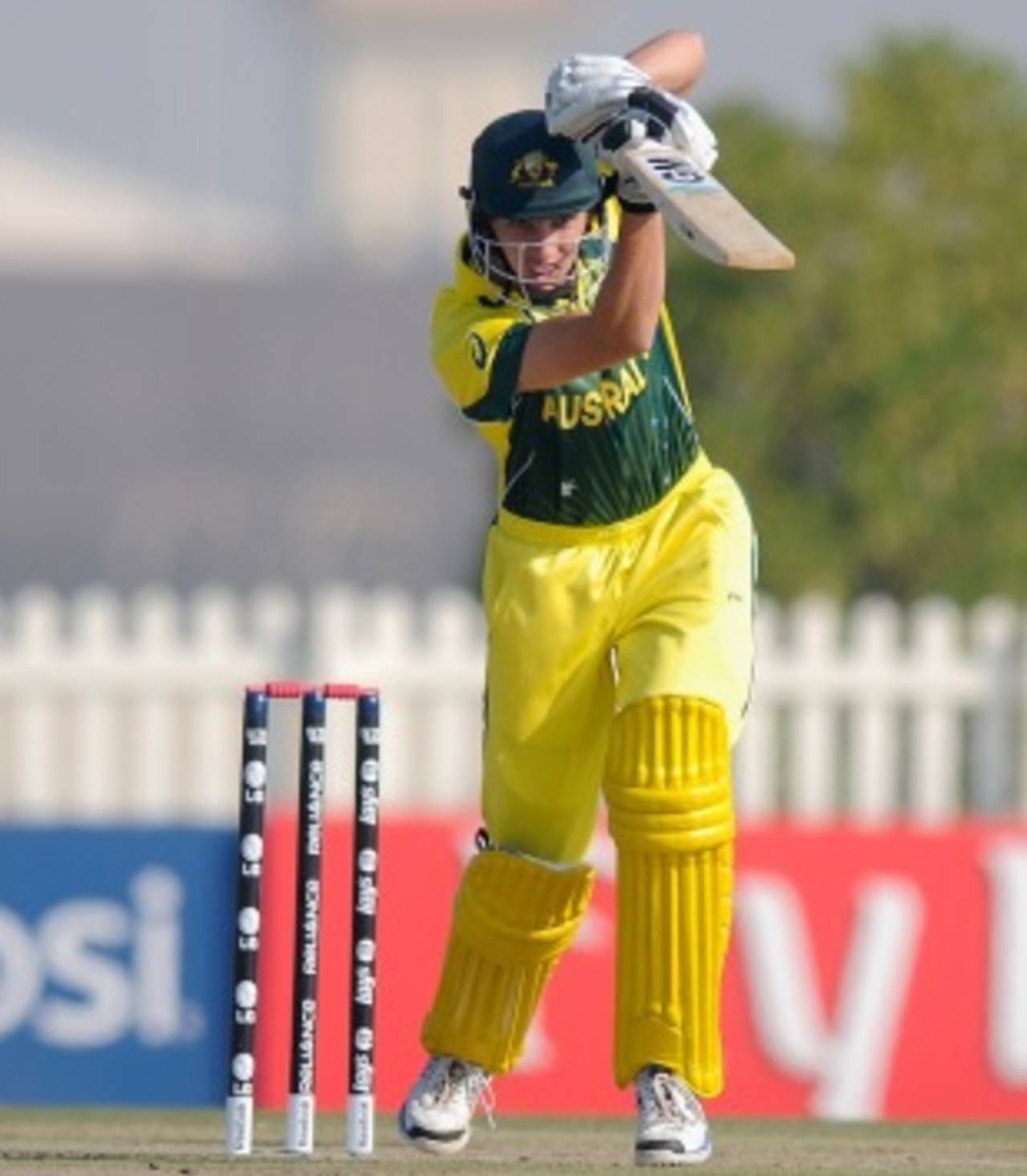The new field restrictions in one-day cricket have produced some astronomical scores, where even a total of 320 is not necessarily considered safe at senior level. But at the Under-19 World Cup, especially at the Dubai International Stadium, the par score has been reduced considerably. The top orders of various sides have struggled to get on top of the conditions, leading to early collapses, followed by recoveries.
The England captain Will Rhodes said after the
semi-final on Monday that he felt 204 was defendable and they nearly succeeded. In the first game of the tournament, South Africa comfortably
defended 198 and the highest team score has been India's 262 for 7 against Pakistan. In eight matches played at the stadium, the average run-rate is 4.24. On the eve of the second semi-final, South Africa coach Ray Jennings said that the low scores are due to batsmen being challenged by good seam bowling and long boundaries.
"I think the pitch has been used quite a lot and pressure also plays a big part," Jennings said. "The big field also plays a part in lowering the score and the spinners are getting a bit of grip. I think the par score is 220 or 230 but even 200 becomes competitive.
"I think the wickets up front are due to the deviation off the wicket, now with two new balls. It's quite harder to bat upfront. If you look at the quality of bowlers in the tournament, there are one or two good fast bowlers who have capitalised."
During the day games, teams batting first have found themselves in troublesome situations such as 24 for 4 (India), 7 for 3 (West Indies). Asked if that trend would prompt teams to rethink their strategy in the first ten overs by adopting a more conservative approach by preserving wickets, Jennings said it depends on the team's composition.
"It depends on the conditions, what kind of batting line-up you have and how you want to play it," he said. "A lot of sides have their best batsmen in different positions and that obviously makes a difference in how you play the first ten overs."
With the matches being played under lights from the semi-finals onwards, there were expectations that the afternoon start would produce more high-scoring contests. However, the script was not very different in the first semi-final when England lost early wickets and recovered to 204. Jennings said the noon start does not leave much game time under lights so the conditions might remain the same, the only difference being the lack of moisture on the pitch.
Australia batsman Matthew Short, however, expects more runs when they take on South Africa. "I think it will favour the batsmen more, normally with the early start there has been swing and movement in the morning," Short said. "It will be interesting to see how the ball plays on the wicket and that will dictate the runs scored."
Despite the collapses, captains like Rhodes and India's Vijay Zol have defended their decision to bat first. Jennings did not think that South Africa would be tempted to follow suit at the toss, as South Africa have won two out of four games chasing. South Africa will be playing their first game in Dubai since the opening day of the tournament.
"Our side's played well batting second. I'm not really fazed about it. If you have a good bowling side it doesn't really matter what you do. But not all sides batting second have been knocked over early. It's a 50-50 from my point of view."
South Africa beat Afghanistan comfortably by nine wickets in Sharjah to enter the semis, and Jennings was happy with the workout.
"We played some really solid cricket but it wasn't as easy a win as it seemed. They were going at six an over for the first ten overs. Their batsmen could have made 260 or 270 and they didn't capitalise on their start. Our bowlers pulled it back."
Kanishkaa Balachandran is a senior sub-editor at ESPNcricinfo
